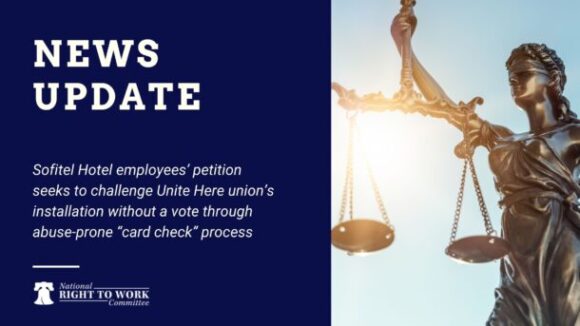Foundation Fires Back Against Biden NLRB ‘Card Check’ Mandate
Brief challenges Labor Board’s attempt to expand coercive, anti-employee organizing scheme
An executive order by Democrat Gov. Bill Ritter opened the door to unionization of state employees, and the Colorado Springs Gazette estimates that nearly two-thirds of the state’s 32,000 government employees could be unionized by next month. Ritter’s order opened the door to a Card Check Scheme where, “[i]f 30 percent of the workers in any group sign petitions seeking an election, it allows them to vote on allowing one union to represent them in creating an ‘employee partnership agreement’ with the state.”
Colorado Springs Republican Rep. Bob Gardner, who has complained that unionized employees would demand greater compensation and strain the state’s budget, was not surprised after what he called an aggressive push by union leaders.
Although the order did not mandate binding arbitration, “Ben DeGrow, a policy analyst with the conservative Independence Institute, argued, however, that permitting partnerships opens the door to further allowances, including binding arbitration.”
Putting a layer of bureaucracy between employees and their managers also could serve to remove workers one step further from the taxpayers who are supposed to be their bosses, said Bob Culwell, a supervisor in the state Treasurer’s Office who opposes unionization.
Culwell called the push heavy-handed – he said he knows of state workers who have gotten visited at home by union representatives – and the campaigning has been done by union organizers rather than employees.
“I believe it’s in the realm of absolute metaphysical certitude that it could hurt taxpayers if this happens,” Culwell said. “The union, by definition, would be standing between them and would be operating in the interests of its members and, therefore, to the non-benefits of citizens.”
Brief challenges Labor Board’s attempt to expand coercive, anti-employee organizing scheme

Josh Hawley distances himself from pro-Right to Work pledges, aligning with union bosses like the Teamsters, despite their history of corruption.

Sofitel Hotel employees’ petition seeks to challenge Unite Here union’s installation without a vote through abuse-prone “card check” process